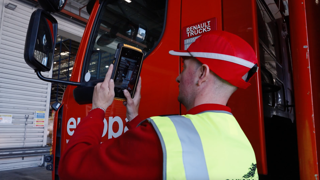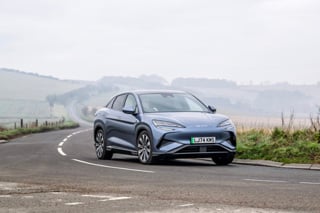Leasing companies are staring at the horizon and not liking what they see, according to the British Vehicle Rental and Leasing Association (BVRLA).
It says that there’s a named storm coming, and its name is electric vehicle (EV) residual values.
So far, leasing firms have been able to weather the impact of the 60% decline in used EV prices since 2022, by offsetting the disposal losses with the proceeds of healthy prices for end of contract petrol and diesel vehicles.
But, the BVRLA says in its latest quarterly report, this has only been possible because EVs constitute barely 10% of their defleeted vehicles.
Looking ahead, EVs now represent 37% of BVRLA members’ total lease fleet and 44% of new additions, with some companies already well above the 50% threshold.
The concentration of EV residual value risk in the business contract hire and salary sacrifice sectors is extreme, argues the BVRLA, with leasing companies keen to see private motorists account for a greater share of the new EV market.
The average CO2 emissions of the BVRLA members’ total leasing fleet continues to tumble, but the disparity in EV adoption rates between business and private drivers is illustrated when those figures are broken down.
Average emissions of new personal contract hire cars is more than double that of new company cars – 129.7g/km versus 61.3g/km.
Beyond supply and demand, there are further deflationary pressures on used EV prices, according to the BVRLA.
New electric cars and vans boast longer ranges and better technology, increasing the risk of rendering current models obsolete, it says.
New entrant manufacturers are offering lower priced models, while legacy OEMs are trying to stimulate the market to hit their ZEV Mandate targets by deploying discounts that are so large they are destabilising residual values, claims the BVRLA, creating a vicious circle whereby they need to keep increasing discounts to offset ever weaker residual values.
The Society of Motor Manufacturers and Traders (SMMT) estimates that discounts have cost manufacturers £4 billion across 2024, a figure it says is unsustainable.
Fleet News has also reported how pre-tax profits of the country’s top 50 leasing companies in the FN50 reveals an equally troubling outlook, with returns declining by almost a third (31.6%) year-on-year.
The financial stability of leasing companies has become an area of enquiry for some large fleet customers, with one supplier saying that it had won a couple of large tenders in 2024 due in part to the formidable balance sheet of its parent.
The BVRLA says that leasing executives are united in their call for Government support for used EV buyers, in the form of grants or VAT reductions, an equalisation of the VAT rate between home and public charging, and a positive communication campaign to promote EVs and dispel negative myths about battery degradation.
In the meantime, they are busy encouraging customers to extend existing EV contracts and developing second-life leasing products. Both moves are proving popular with customers keen to minimise their costs, says the BVRLA.
Salsac and BCH offset PCH fall
There was an impressive 6.3% year-on-year increase in business contract hire (BCH) car numbers, up to more than 867,000 vehicles in 2024.
BCH accounts for 60% of the lease fleet and has risen to levels not seen since the first half of 2019 before coronavirus struck.
The PCH market, however, has been in almost uninterrupted quarter-on-quarter decline since the first three months of 2021, with vehicle price rises, higher interest rates and the cost-of-living crisis dampening demand.
The 15.1% year-on-year fall in PCH numbers follows the shrinking volumes in the private new car market, where SMMT data tracked a 9.4% decline between January and September.
The stellar performer in the car sector continues to be salary sacrifice, up 51% year-on-year, as a new wave of smaller, cheaper electric vehicles and fledgling offers of secondhand EVs are making the environmental employee benefit accessible to lower paid workers.
























martinwinlow - 15/01/2025 13:24
Not a single mention of hybrids, here. Also obfuscation/ignorance of what has been going on in the ICEV used market. I think the EV residual value 'storm' has actually passed already - unless the BVRLA is mainly talking about hybrids which are *obviously* going to worth next to nothing compared to newer EVs as more and more people finally realise they have been duped by the likes of Toyota (with their 'self-chargng EVs' - seriously?!) and wake up to the reality that hybrids are just very marginally more efficient ICEVs with all the -ves that fact represents. In which case, more fool them.